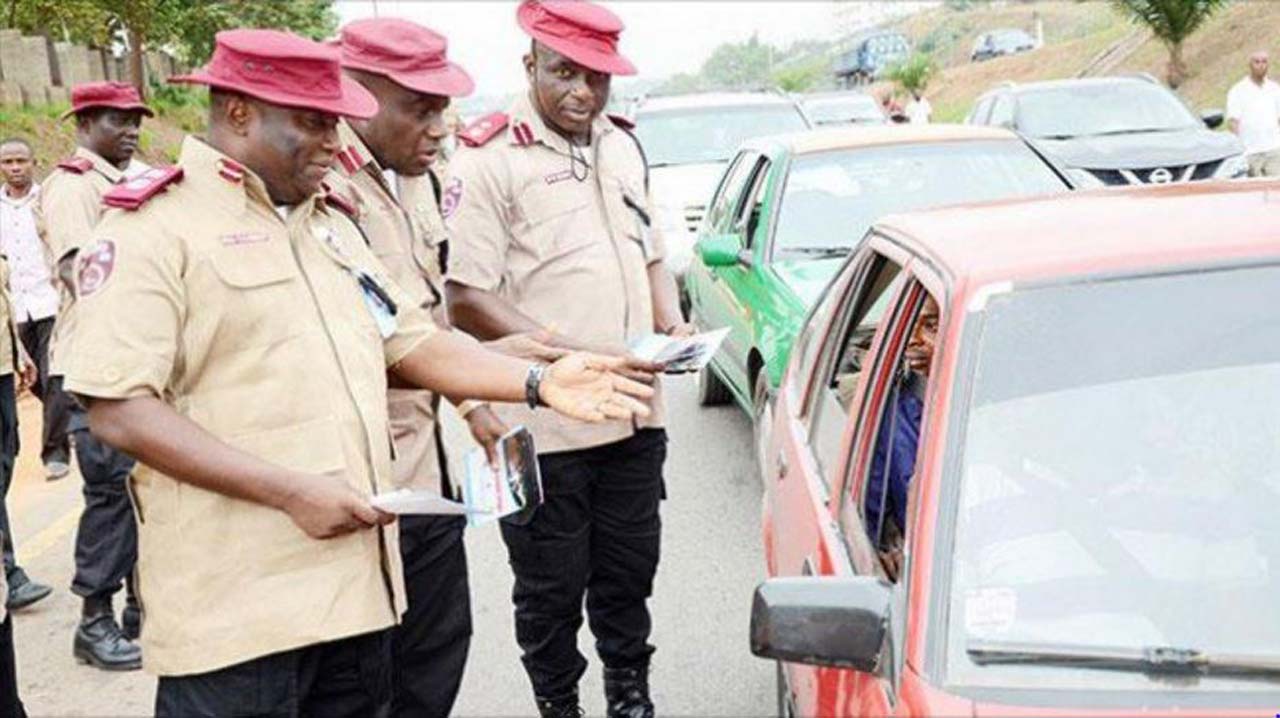The Federal Road Safety Corps (FRSC) has arrested a total of 144 offenders for overloading of vehicles in persons.
The FRSC, in a statement by its Corps Public Education Officer, Bisi Kazeem, said the move was in pursuant to the need to mitigate the spread of coronavirus disease amongst passengers.
The Corps Public Education Officer stated that the figures of the arrests was drawn from 16 states with the highest number of arrests recorded in the Federal Capital Territory where a total of 52 overloaded vehicles were impounded while Lagos State followed with a total of 17 arrests.
He gave the list of states where more than 5 arrests were made as Plateau 14, Delta 13, Benue 9, Adamawa 6, and Katsina with a total of 6 arrests.
While Nasarawa and Ogun State recorded 5 arrests each, Niger and Kwara recorded 4 each, Osun 3, Rivers and Akwa Ibom had 2 each with Zamfara and Enugu recording the lowest arrest of 1 per state.
The FRSC also ordered all categories of transporters to ensure full compliance with the provisions of Regulation 108 (1) of the National Road Traffic Regulation 2012 on compulsory passenger manifest; and directed all public transport operators to imbibe necessary precautionary measures in their parks and terminals.
It said failure to adhere strictly to the order will attract the necessary sanctions.
The statement said that the Corps Marshal, Dr Boboye Oyeyemi, who gave the order, stated that the Corps observed that despite the palpable spread of the virus, public transport operators continued to board passengers to full capacity without consideration to social distancing, passenger manifest and seat spacing of passengers.
“This unhealthy behaviour, if not put to check on time, has the potentials to fuel the spread of the virus,” the statement quoted him as saying.
He emphatically noted that all passengers travelling; not only during the epidemic regime but at all times, have the statutory obligation to write down their full information in the passenger manifest before commencement of the trip.
He noted that putting down details of passengers on a manifest is a mandatory and acceptable practice all over the world, that the document contains basic information including contacts of next of kin of all the passengers travelling in the vehicle for ease of identification and contact in the case of any problem.

 Join Daily Trust WhatsApp Community For Quick Access To News and Happenings Around You.
Join Daily Trust WhatsApp Community For Quick Access To News and Happenings Around You.

